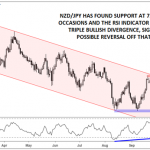Nothing ever goes in a straight line. For every rally there will inevitably be a retracement, a minor sell-off often of no more than profit taking. These are generally pausing where a durable trend either overcomes doubts or succumbs to them. In the stock market, they call it the wall of worry. In bonds, it’s become a bit more complicated.
At this particular moment, US Treasuries are again being sold. It’s really not to this point all that much, but you wouldn’t know it from the commentary trying to describe it. The headlines all scream in unison BOND ROUT! It is in many ways the opposite of stocks, where even larger corrections (like the liquidations in 215 and 2016) get shrugged off as nothing of great concern.
This disparity is, however, quite easily explained. Stocks on the way up are a reflection of the way the world is supposed to be. It just isn’t possible, in mainstream convention, for prolonged economic agony. Share prices as they are now, as they have been since especially QE3 in 2012, are signaling the end of the malaise and the belated return of conventional sense. Bond yields going only lower are a loud (and more robust) contradiction to good orthodox understanding of the way the whole world might actually work.
The Wall Street Journal every month conducts a survey of more than 60 prominent economists. Each gives future projections about 10 economic parameters like GDP and the CPI. They have been doing so going all the way back to December 2002, though you wouldn’t know it because the results are rarely mentioned, reflecting overall very poorly on the respondents. Among the primary variables is the 10-year UST yield.
In January 2014, not a single one of those economists forecast falling interest rates (as represented by the 10s). Most were extremely negative on the bond market, with the mere average estimate for the end of 2014 coming out to 3.52%, up from around 3% where the 10s had ended the turbulent BOND ROUT! of 2013. One economist actually thought yields would be above 5% by the end of that year.












Leave A Comment